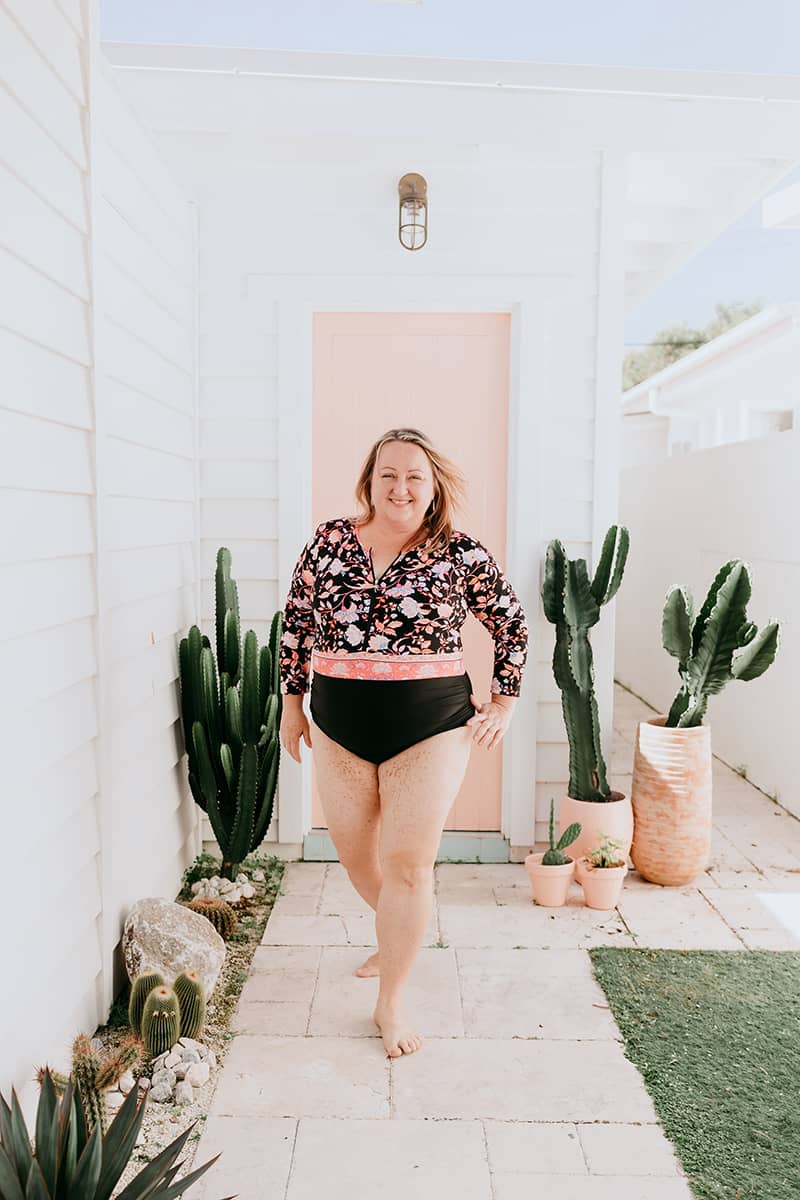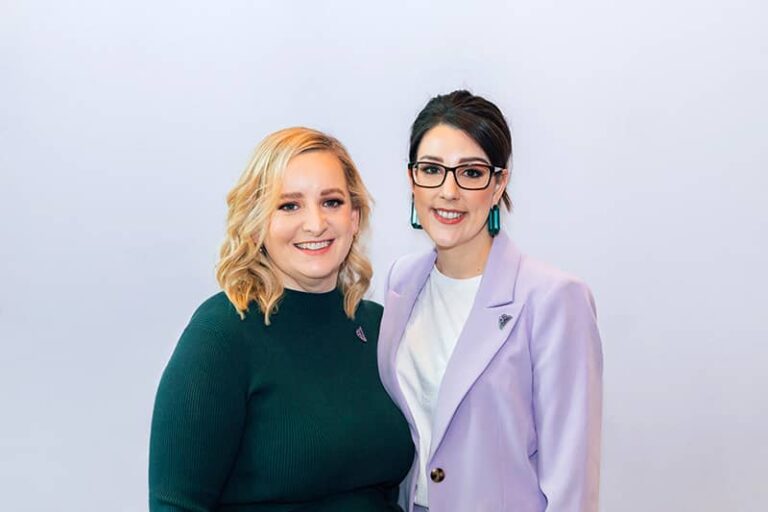It is October 2022 and next week I’m having gastric sleeve surgery. That sentence leaves me conflicted. Not in my decision to do this, but how to talk about it.
In my early forties, I learnt to embrace my body. I worked hard to banish the shame I carried together with my extra kilos. I learnt to love my imperfect body and appreciate everything it could do, regardless of how it looked. I’m an ambassador for The Body Image Movement founded by Taryn Brumfitt and I pushed back on society’s narrow ideal of beauty and modelled plus-size swimsuits. I’ve written and facilitated empowerment programmes for women. Many had hidden themselves away for years, uncomfortable in their bodies and struggling to find joy in life. I am a proud supporter of the ‘health at every size’ movement.
Without this body-positive journey, I could not have made the choice to have surgery. If I’d made this decision 10 years ago, it would have come from a place of hating my body. Now it comes from a place of loving it so much, I want to live a full and healthy life in it as long as possible.
Why this surgery?
Currently, I am not healthy. I’ve got a long list of health issues including type 2 diabetes, metabolic associated fatty liver disease (a poor functioning liver), and subclinical hypothyroidism (mild thyroid failure). These issues are lifestyle related and can be assisted by improved lifestyle factors. I am approaching this surgery as one tool in my journey to positively adjust my lifestyle. My eating habits are a big part of my detrimental lifestyle and for myriad personal reasons, I’ve had no luck fixing them. So, I’m using the medical procedures available to improve my health. I am choosing not to call it ‘weight loss surgery’ as that puts the focus on losing kilos.
I have a long family history of type 2 diabetes and had been tested for it often. I’ve had symptoms for years, including excessive water consumption and drowsiness after eating high-carbohydrate meals. Each time my blood tests came back saying I wasn’t in the diabetic range, I patted myself on the back thinking, ‘I’m overweight and still healthy!’ However, after doing a glucose tolerance test to test for diabetes not long ago, I slid down my chair unconscious within 20 minutes. My luck had run out – I had type 2 diabetes.
And so, after spending the last decade learning to love and appreciate my body, I was back to hating my body. I resented my genetics and my lack of willpower.
My doctor prescribed medications, and I cried with shame. She touched my freckle-covered arms and said, “You have fair skin and lots of freckles. You probably worked out early that spending too much time in the sun made more freckles appear. Those freckles remind you of fun memories from all those times in the sun. Times with friends going to the beach, or watching your kids play sport. They are a by-product of having fun. But sun exposure puts you at risk of melanoma. So, you now apply sunblock and minimise your time in the sun.
“Diabetes is just the same. It was fun eating whatever you wanted. You put on weight, just as the sun gave you freckles. Now you know that lifestyle isn’t healthy in the long term. I’m going to prescribe medication to help your blood sugar levels and together with lifestyle adjustments your health will improve. It doesn’t mean you’ll never go back out in the sun or binge a bit of ice-cream.”
I gave myself one year to overhaul my lifestyle and put my diabetes in remission. After all, I had nearly 40 years of dieting experience. I started calorie counting and weighing myself weekly, something I swore I’d never do again. My mental health deteriorated every time I stood on the scales. The weeks I didn’t lose weight, I’d curl up in bed, despondent. I stopped dieting and decided to just live my normal life.
I was overjoyed earlier this year when our daughter announced she was pregnant and due in March 2023. Our first grandchild! I was made to be a grandmother, her ‘Gigi’. That night, I lay in bed dreaming about having an adorable baby in our lives, It reminded me of my own mother who died 18 years ago. She used to joke that she’d only had kids so she could one day have grandchildren. But when I was pregnant with our second child, my mother was diagnosed with lung cancer. It could be treated surgically if she quit smoking. Unable to overcome her addiction, she continued to smoke and passed away when my son was three months old.
Food is my addiction. With my diabetes diagnosis, it was my eating habits that would reduce my lifespan. The next morning, I booked an appointment with a bariatric surgeon to discuss surgical options.
I’m in the pre-operation stage, drinking three meal replacement shakes per day along with small bowls of steamed vegetables for two weeks to reduce the fat around the liver. My mental health wavers but it’s holding on. Over the past few weeks, I’ve met with dietitians and food psychologists. I’ve felt the range of shame that comes with a life-changing decision such as weight loss surgery. It’s cheating, it’s the easy way out, why can’t you just exercise more and eat less? It is like asking an alcoholic, ‘Why can’t you just have one beer and then stop?’
My years of being a body image advocate have given me a healthy mindset. This operation is for my health, not my appearance. I told my surgeon I want to define my own success. This will not include a goal weight or BMI. These are my personal goals: diabetic remission; improved thyroid function; increased muscle mass; stronger bones; reduced knee pain; improved blood test results; and being an active ‘Gigi’ for my granddaughter. I will not post ‘before and after’ photos or share details of kilos dropped, because for me, they are unnecessary, and I know they can trigger people with body image struggles.
This is my body-positive journey to better health and a longer life.
Surgery Day
Checked in and prepped for surgery by 6:30am, I lay alone in a hospital bed and reflecting on the decisions that led me here. The positivity I’d felt in the days before gave way to shame. With moments before I underwent drastic surgery to change my eating habits, I allowed myself to wallow. Despite people telling me I was brave and should feel proud, in that moment I felt
like I’d failed.
I was transferred to theatre where the surgeon was waiting to discuss the procedure. He explained what he wanted me to do after I woke up. He then put a comforting hand on my shoulder and said, “The first 24 hours are the worst. Ask for more pain relief if needed. Breathe deeply and know it will pass. Most people wake up with buyers’ remorse.”
He was right – I did wake with buyers’ remorse. My abdominal muscles were cramping like labour pains. I dry-retched violently for hours. I sweated profusely. My blood pressure skyrocketed, requiring a patch on my chest to bring it down. The patch gave me a migraine. My blood sugars went too high. As my husband massaged my feet to calm me, I cried, “What have I done?”
But true to my doctor’s word, the next day I was vastly improved. I was not allowed to eat or drink anything for the three days I was in hospital, kept hydrated by an intravenous drip. Food deprivation is a strange place for a food addict. However, as the days wore on, I marvelled at how well my body was healing despite the lack of energy going in. I was able to get up and move around quite easily.
I could also feel my mindset shifting already – from always thinking about food and what I was going to eat next, to thinking more about nutrition.
On day three, I was allowed to sip 60ml of chicken broth. Nothing has ever tasted so good. I closed my eyes and visualised the watery broth sliding down my throat, bringing nutritious energy to my body. I thought, “This is the turning point, Tatia. Focus like this every time you eat from this day forward. Always consider, how is this food going to make my body healthier?”
Two Weeks Post-Op
For two weeks I was on a free fluids diet, consuming thin soups and water with protein powder and electrolytes. I fatigued quickly and took many naps but was thankfully pain free. Much to my surprise, I never felt hungry. I did grow tired of soups, however!
I’ve now graduated to puréed foods and can feel my energy starting to return. It takes me 30 minutes to eat one quarter of a cup of food. I enjoy taking time to savour the flavours. My priority is to eat protein to help with healing, so I carefully consider every bite. I am hitting health goals already as I’m off diabetic medication and my blood sugars are stable. My resting heart rate has gone down 13 beats per minute, despite being restricted from exercise.
I move with more ease and am finding daily tasks easier, like getting up off the floor. The sore knees I had before – already, they don’t ache any more. I used to like walking but I haven’t been allowed to do anything active yet. Also, I used to do Pilates but I had to stop as my belly got in the way.
However, I am conflicted. As my body shrinks, I feel my confidence grow. I delight in trying on clothes that haven’t fitted me for years. I marvel at how good I feel in them. It feels vain and vacuous for me, yet I can’t stop. I remind myself that I’ve had five decades of diet culture and society’s obsession with thinness ingrained into me. I am determined to not attach self-worth to my appearance.
Three months post-op
Over Christmas, I cooked a lot of the food but somehow, it didn’t bother me that I couldn’t eat most of it. Now that I have such a small space to fill in my stomach, I’m always thinking about which foods will give me the most energy. Carbs were my biggest weakness before, but I tend to not eat them now as they take up too much space, without the energy benefit. I don’t miss them at this stage.
I am able to do yoga and Pilates now, I do parkrun every week – I’m still walking and jogging it at the moment but I’ve set myself a goal to run the 5km in 35 minutes. Last week, it was my 50th birthday and we had a fancy dress karaoke party – I went as singer Toni Basil and was thrilled to be able to perform those cheerleader moves. However, I did wake up the next day feeling every bit of 50!
This has been a mental journey as well as a physical one for me. I was always terrified of being hungry before, and that would give me anxiety. But my mindset around food right now is the strongest I’ve ever felt. I’m not concerned about my weight – I’ve stopped weighing myself because it’s not healthy mentally for me.
We’re planning a trip to Italy this year and I know I’ll eat pasta there but that’s okay. I feel so good and energetic – I know overeating is what was stopping me feeling this way before.
I’m trying to remember that the surgery is a tool, it’s not a magic pill. I am a work in progress, as always.
Gastric Sleeve Surgery
According to research published in Surgical Endoscopy, about 20% of individuals will experience complications following gastric sleeve surgery. These may range from surgical complications to a lack of weight loss, and they can occur during the procedure, shortly after, or even years later. If you are considering surgery, your healthcare provider can explain the risks and complications and may also suggest other treatments.







